The total value of Australia’s housing stock was $11.3 trillion as of March 31, 2025, according to CoreLogic, with the average home worth exactly $1 million.
The surge in average home values to $1 million has notionally made Australians some of the wealthiest people on earth.
For example, the UBS Global Wealth Report ranked Australian households second in the world on net wealth.
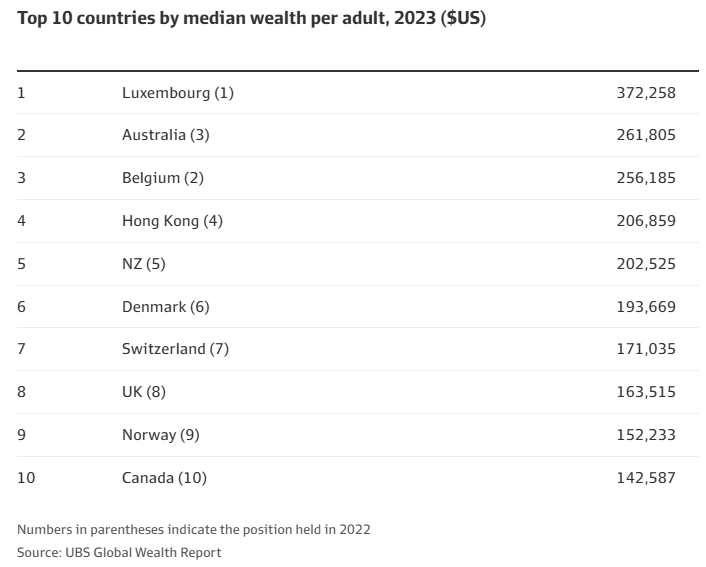
However, much of Australia’s wealth is fake and expensive housing is slowly choking the economy.
Australia is heavily overweight in housing (4.5 times GDP) and relatively underweight in shares (1.2 times GDP). Australians hold more of their wealth in housing and less in shares than other English-speaking nations.
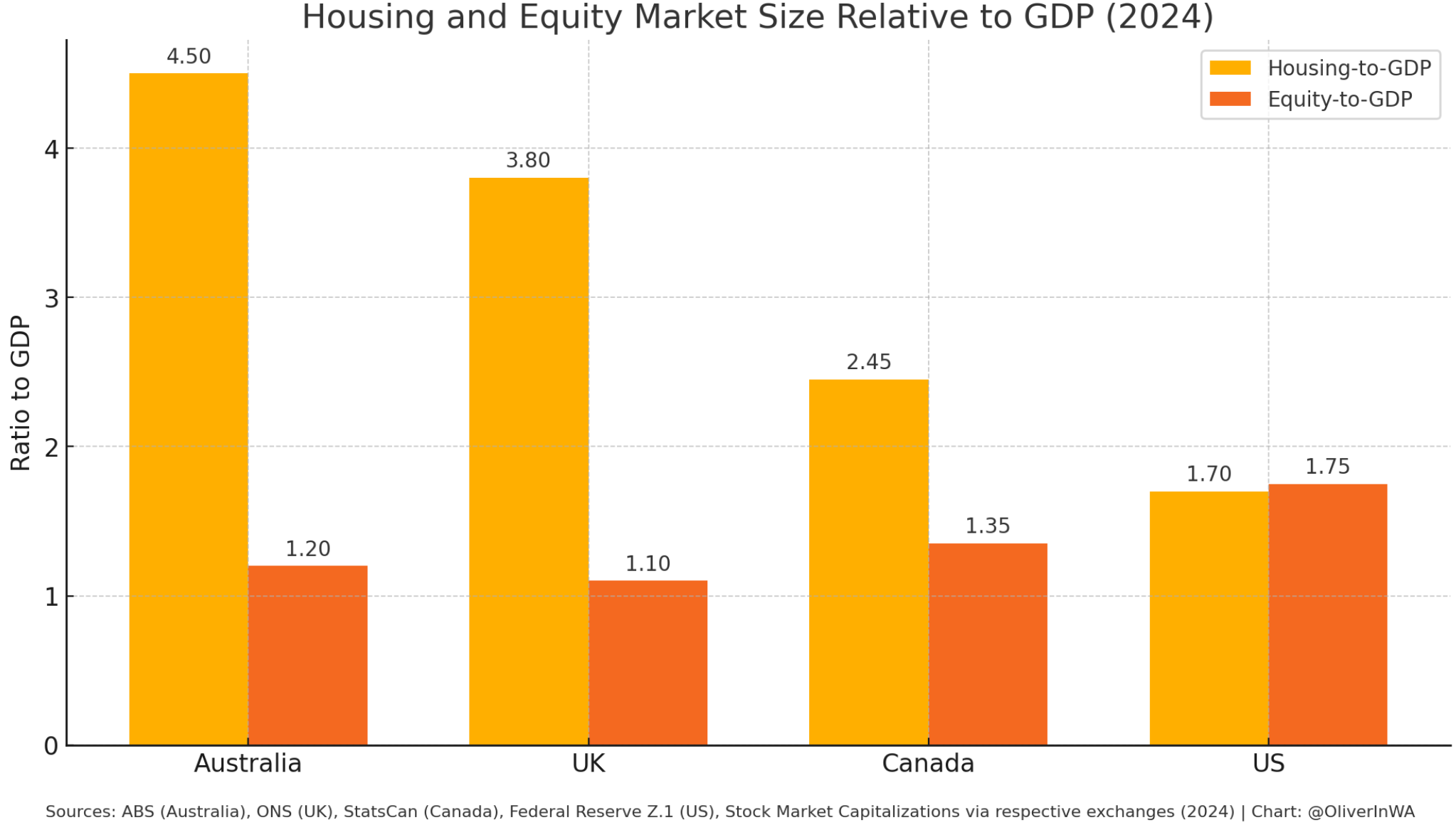
The comparison to the USA is particularly stark, with housing in the US valued at only 1.7 times GDP and equities valued at 1.75 times GDP.
Australian households also carry some of the world’s highest debt loads.
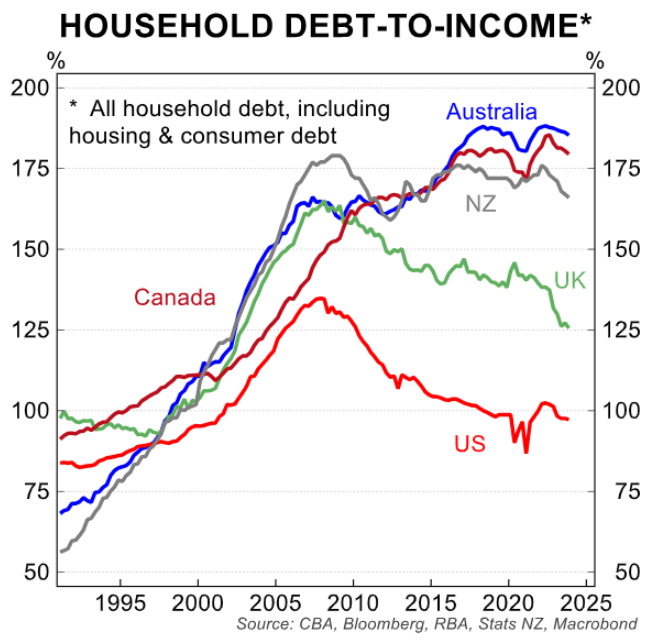
The rush of capital into housing has starved businesses of investment and lowered Australia’s productivity.
Australia’s banks have evolved into giant building societies focused on home lending at the expense of productive businesses.
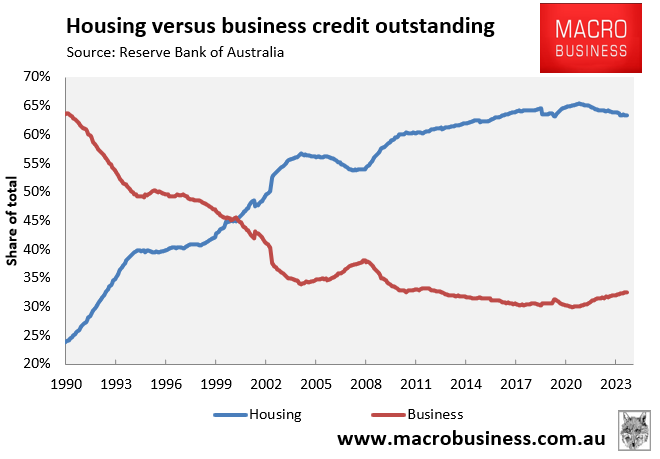
In 1990, around two-thirds of bank lending was for businesses, with mortgages accounting for only around a quarter of bank lending. Thirty-five years later, the ratio has flipped, with over two-thirds of bank lending for housing and barely one-third for businesses.
Australians would be better off with lower house prices:
Despite being among the wealthiest households in the world, Australians are struggling financially.
Many Australians are buckling under the weight of mortgage and rent repayments, which, according to CoreLogic, are sucking up a record share of income.
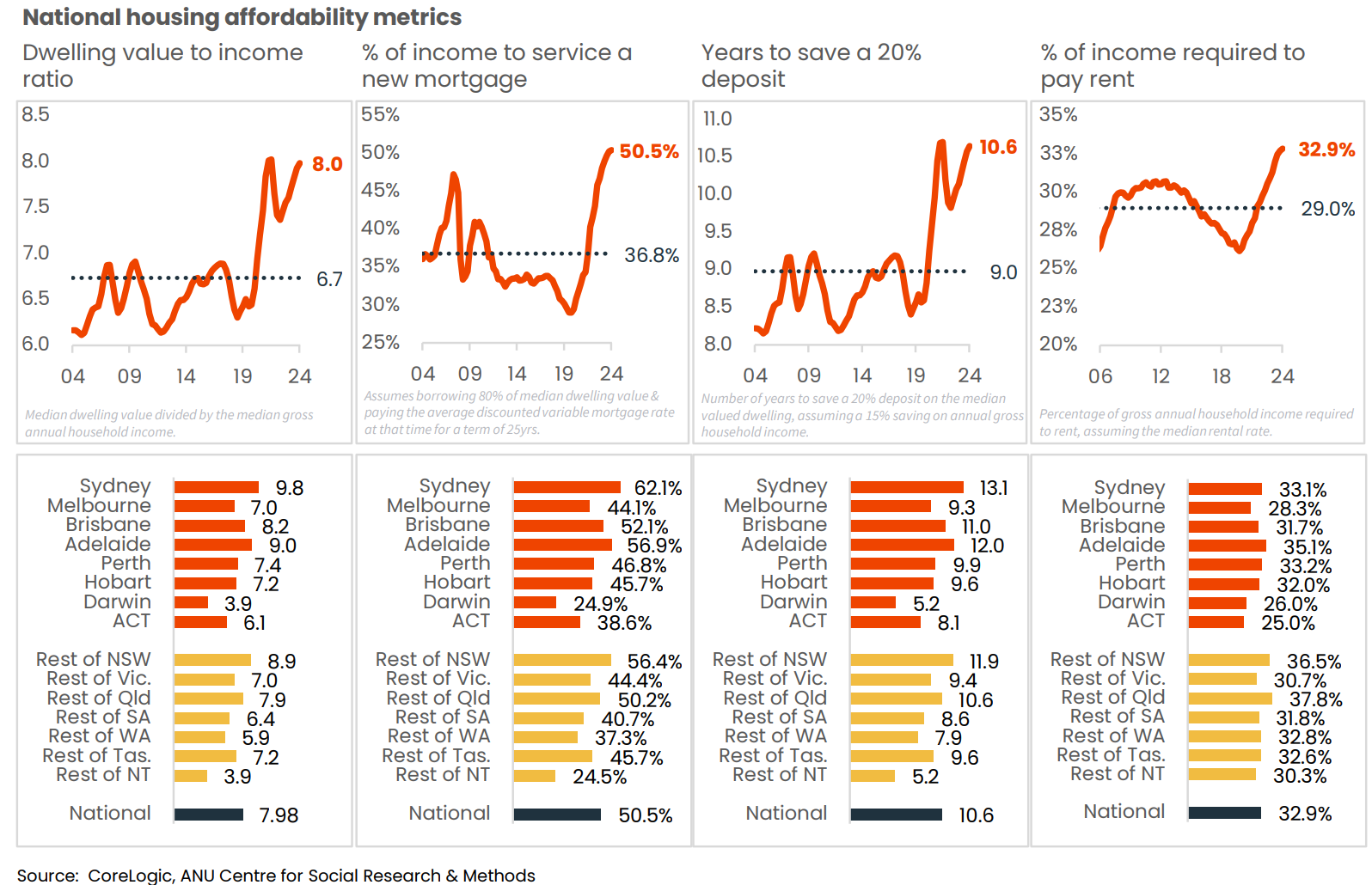
Given that housing affordability is at an all-time low and our younger generations cannot buy a home without parental financial assistance, how can Australian households be considered the world’s second wealthiest?
Australians would be wealthier if the average home were valued at $500,000 instead of $1 million, and household debt were 90% of income rather than 180%.
Australia would be a considerably more egalitarian society, and we would be financially better off if our homes cost half as much as they do now, with half the debt.
According to the 1991 Census, Australia’s home ownership rate was about 5% higher than today, homes cost around 3 times incomes (versus 8 times today), and household debt was 70% of income versus 180% of income today. Banks also lent two-thirds to businesses and only one quarter to mortgages.
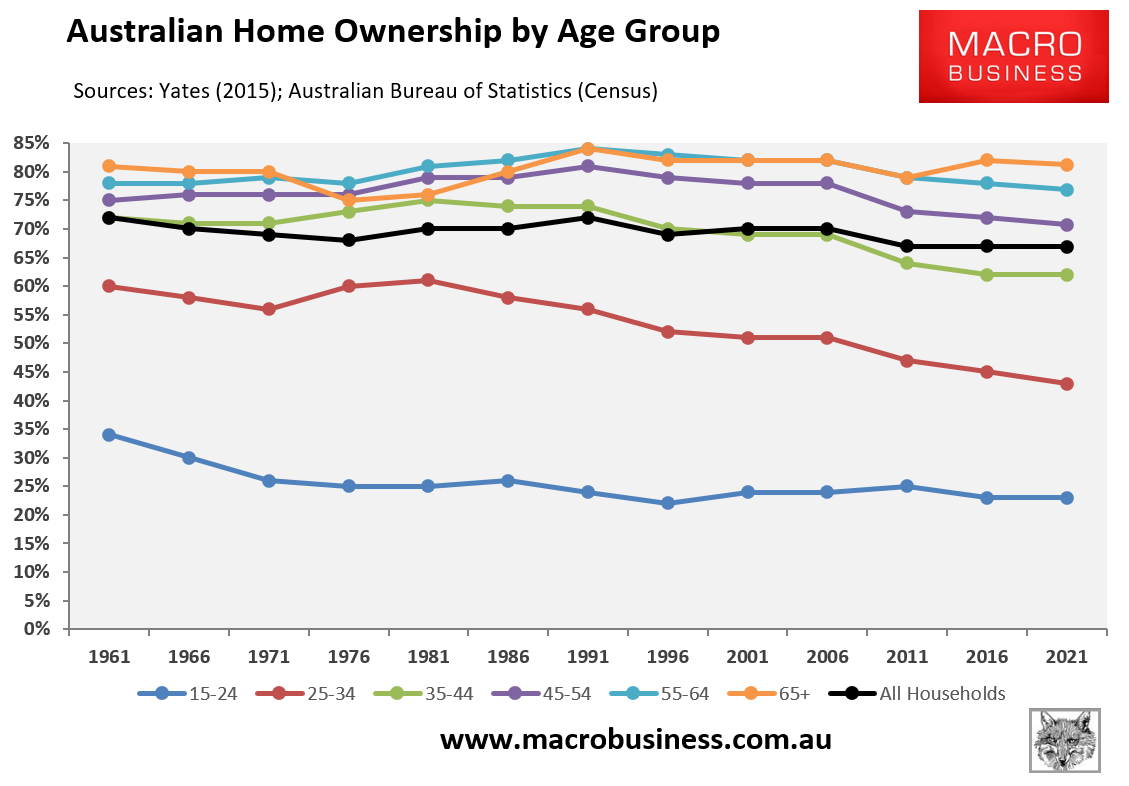
Despite having far less housing wealth, Australian households were far better off in 1991 than they are today. Australia also had a far more balanced and diversified economy in 1991 than it does today.
Australia’s high property prices negatively impact our children, grandchildren, and future generations by forcing them to pay significantly more for shelter than necessary.
Whether a home is valued at $500,000 or $2 million, it serves the same function: shelter. Higher housing “wealth” is meaningless to most people who live in their homes rather than own investment property.
The economy would also be more balanced and productive if it had channelled capital into businesses rather than inflating home values.
In this regard, Australia’s $11.3 trillion housing stock represents a gross misallocation of capital.
Politicians make the housing situation worse:
The federal election campaign has seen both sides promise to leverage the federal budget to divert more capital into housing.
Labor’s policy would effectively create a state-sponsored subprime mortgage scheme by allowing all first-time home buyers to purchase a property with a 5% down payment, with the government (taxpayers) guaranteeing 15% of the borrowers’ loan.
Labor has also stated that mortgage lenders will no longer be required to include student debts in their serviceability assessments.
The Coalition’s announcements are equally inflationary for home prices. These include permitting first home buyers to use their super savings as a down payment and making mortgages for new homes tax-deductible for first home buyers.
Regardless of who wins Saturday’s election, more buyers will be sucked into the market, household debt and property prices will increase, and more of the nation’s capital will be sucked into non-productive housing.
I discussed these issues in this week’s Treasury of Common Sense on Radio 2GB/4BC:

